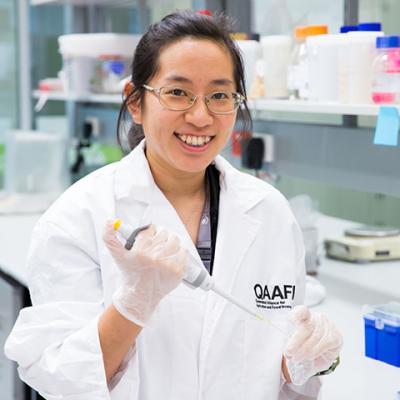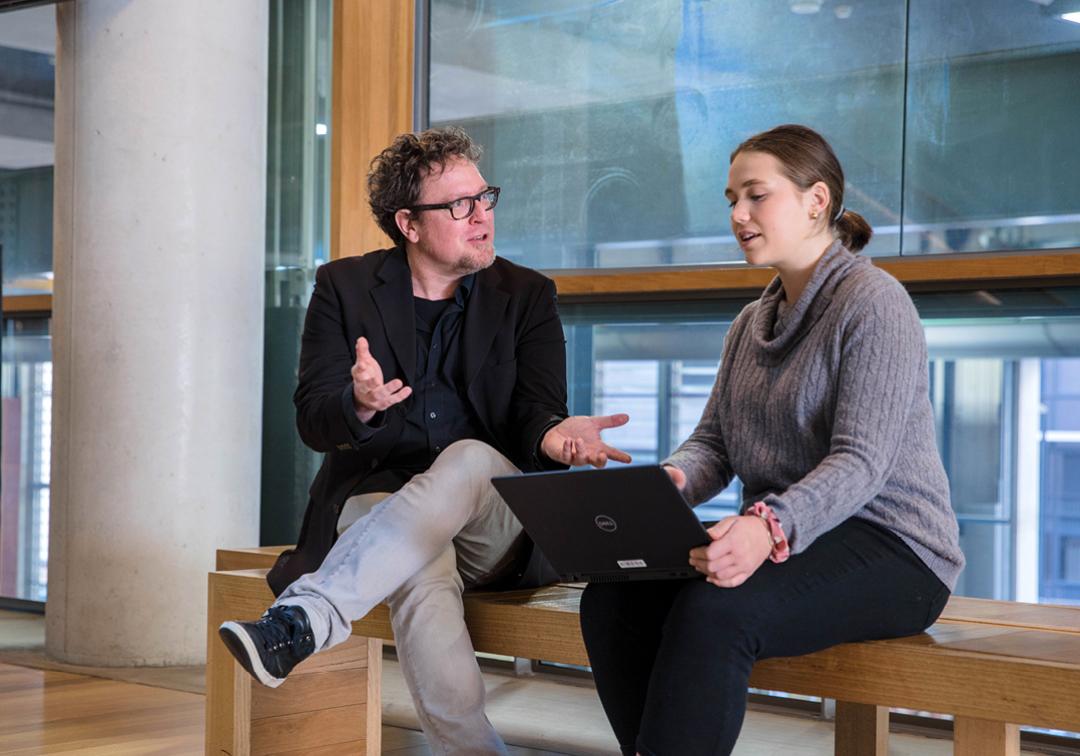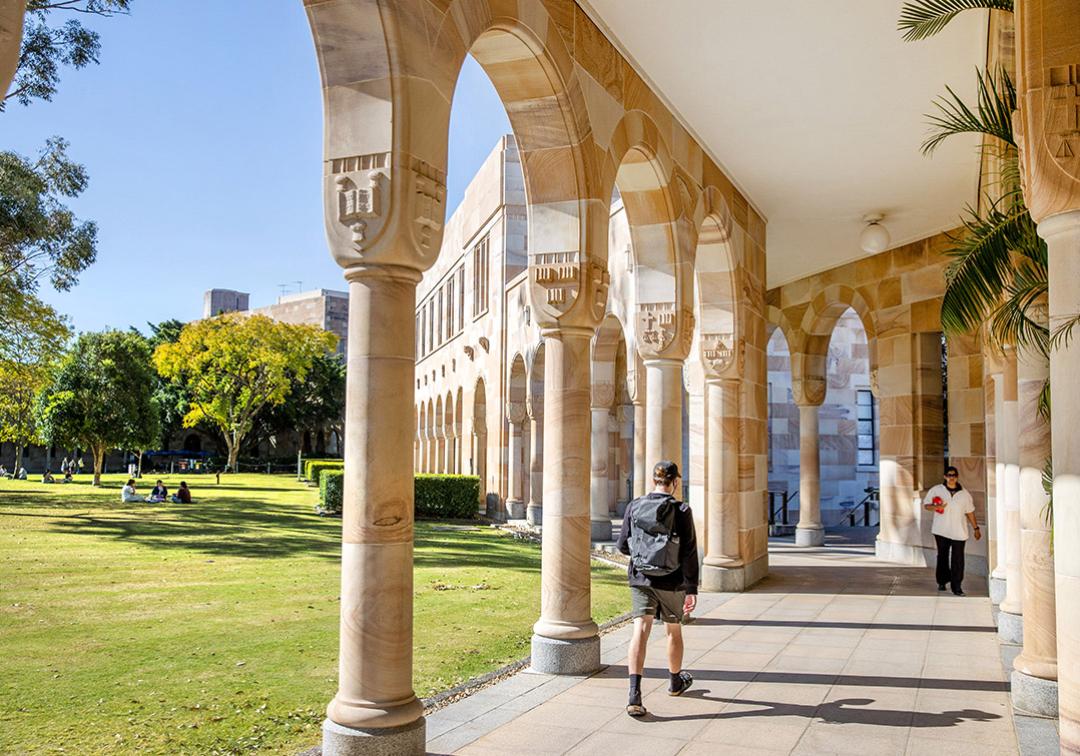
Bachelors of Science / Arts
Overview
Craft a degree as unique as your ambitions by combining arts and science specialisations in this flexible 4-year dual program.
With one of the broadest selections of majors in Australia—from Aboriginal and Torres Strait Islander studies to zoology—you can tailor your studies to match your interests and career goals.
Build expertise in foreign languages alongside science to unlock global career opportunities, or blend computational and environmental studies to tackle pressing issues like climate change and food security.
Enhance your studies further with a concurrent diploma in languages, and open the door to honours opportunities in science or arts after graduation.
- Location
- St Lucia
- Duration
- 4 Years (or part time equivalent)
- Start Semester
- Semester 1 (23 Feb, 2026), Semester 2 (27 Jul, 2026)
- QTAC Code
- 731501
- Program Code
- 2478
- AQF
- Level 7
- Location
- St Lucia
- Fees
- A$54096
- Duration
- 4 Years
- Start Semester
- Semester 1 (23 Feb, 2026), Semester 2 (27 Jul, 2026)
- Semester dates for 2027 are yet to be confirmed
- QTAC Code
- 731501
- Program Code
- 2478
- CRICOS Code
- 013827E
- AQF
- Level 7
Program highlights
Program highlights
- Explore over 80 study areas across science, arts, humanities and languages.
- Develop advanced creative and analytical skills to excel in diverse careers.
- Discover endless opportunities with a dual degree that prepares you for any future.
Majors
Tailor your studies to suit your goals. This program offers these options:
- Aboriginal and Torres Strait Islander Studies
- Ancient Greek
- Ancient History
- Ancient History/History
How you'll learn
Your learning experiences are designed to best suit the learning outcomes of the courses you choose.
- Lectures
- Tutorials
- Overseas study
- Laboratory work
- Fieldwork
- Workshops
What you'll study
At UQ, degrees are called 'programs' and subjects are called 'courses'.
Career possibilities
Our programs prepare you for your first job and beyond. Depending on which major you choose, here are some of the careers you could be on your way to:
- Community engagement officer
- Museum administrator
- Heritage consultant
- Materials scientist
- Medical scientist
- Quantitative researcher
- Marine research officer
- Mine geologist
Average annual salary range
Environmental Scientist
seek.com.au
Average annual salary range
Zoologist
seek.com.au

My studies have provided me with the opportunity to explore many different areas that I am passionate about. The skills I have learnt in the arts are useful and transferable to my science courses and in everyday life.

I chose to study at UQ because of its highly regarded reputation. I was accepted into UQ’s Advanced Study Program in Science where I had the opportunity to gain vital research experience during my undergraduate years.

I chose UQ because of the flexibility that was offered in terms of studies. This program allowed me to study both Biomedical Science and Psychology and choose from a wide range of interesting courses that I could not have done elsewhere.

I chose UQ as it's well known for offering great science education plus it offered a dual degree, allowing me to follow my curiosity in science and pursue my deep interest and fascination with Japanese language, literature and culture.

My studies have provided me with the opportunity to explore many different areas that I am passionate about. The skills I have learnt in the arts are useful and transferable to my science courses and in everyday life.

I chose to study at UQ because of its highly regarded reputation. I was accepted into UQ’s Advanced Study Program in Science where I had the opportunity to gain vital research experience during my undergraduate years.

I chose UQ because of the flexibility that was offered in terms of studies. This program allowed me to study both Biomedical Science and Psychology and choose from a wide range of interesting courses that I could not have done elsewhere.

I chose UQ as it's well known for offering great science education plus it offered a dual degree, allowing me to follow my curiosity in science and pursue my deep interest and fascination with Japanese language, literature and culture.
Events
See all events
9 June
Master of Physiotherapy information webinar

29 June
Voyages to the Underworld: UQ Centre for Western Civilisation Winter School

29 June
Queensland Biology Winter School, Year 12
Stories
See all stories
Uni life
What's it really like to study science at UQ?
9-minute read

Uni life
What's it really like to study arts at UQ?
6-minute read
Stories
See all stories
Uni life
What's it really like to study science at UQ?
9-minute read

Uni life
What's it really like to study arts at UQ?
6-minute read
Entry requirements
Prerequisites
- Queensland Year 12 (or equivalent) General English subject (Units 3 & 4, C)
- Mathematical Methods (Units 3 & 4, C); and
- one of Biology, Chemistry, Earth and Environmental Science or Physics (Units 3 & 4, C)
- From Semester 1, 2028, Earth and Environmental Science will no longer be accepted.
Prerequisites
- Queensland Year 12 (or equivalent) General English subject (Units 3 & 4, C)
- Mathematical Methods (Units 3 & 4, C); and
- one of Biology, Chemistry, Earth and Environmental Science or Physics (Units 3 & 4, C)
- From Semester 1, 2028, Earth and Environmental Science will no longer be accepted.
Minimum entry score
Select where you studied and your qualification to see the minimum entry score you need to be considered for this program.
Use the minimum entry score as a guide. Your score must be at least equivalent to the required Australian Year 12 ATAR score. Entry scores are reviewed each year.
Equivalent subjects
| Subject | Qualification equivalent |
|---|
Entry score threshold
| ATAR / Rank | IB |
|---|---|
| 80 | 30 |
These are the lowest adjusted scores we made an offer to in Semester 1, 2025. Entry scores are based on the most recent Semester 1 intake and are updated in April each year. Meeting the entry score threshold doesn't guarantee admission.
Guarantee your place at UQ: If you meet our guaranteed minimum ATAR you could secure an offer for your preferred program.
English language requirements
IELTS overall 6.5; reading 6; writing 6; speaking 6; listening 6. For other English Language Proficiency Tests and Scores approved for UQ
TOEFL iBT (including Paper Edition) - Overall 87, listening 19, reading 19, writing 21 and speaking 19.
PTE Academic - Overall Score of 64 and 60 in all sub bands.
BE - A minimum overall grade of 4 plus a minimum grade of C in all macro skills.
CES - Overall 176 and 169 in all sub bands.
OET is not accepted.
There are other ways to meet the English language requirements. For some programs, additional conditions apply.
Student visas
International students who are accepted into full-time study in the Bachelors of Science / Arts are eligible to apply for an Australian student visa (subclass 500).
There are a number of requirements you must satisfy before a visa is granted, including the Genuine Student (GS) requirement.
Entry score range
This table shows the range of entry scores for recent secondary students offered a place in the B Science/BArts for Semester 1, 2025
| Without adjustments | With adjustments | |
|---|---|---|
| Highest | 99.15 | 99.95 |
| Median | 91.7 | 93.85 |
| Lowest | 76.4 | 80.4 |
Who you'll study with
Here's a snapshot of our student intake for this program in Semester 1, 2025:
| Applicant background | Number of students | Percentage of all students |
|---|---|---|
(A) Higher education study | <5 | <5 |
(B) Vocational Education and Training (VET) study | <5 | <5 |
(C) Work and life experience | 0 | 0% |
| (D) Recent secondary education | ||
| 62 | 89.9% |
| 0 | 0% |
| 0 | 0% |
International students | <5 | <5 |
Total | 69 | 100% |
"<5" — The number of students is less than 5.
N/A — Students not accepted in this category.
N/P — Not published. The number is hidden to protect the privacy of students in other cells.
Need help meeting the entry requirements?
We can help you meet the minimum entry score, subject prerequisites or English language requirements for your preferred program.
If you haven't studied the prerequisites or need to improve your entry score, we can help.
Majors and minors
Majors
Tailor your studies to suit your goals. This program offers these options:
Minors
Tailor your studies to suit your goals. This program offers these options:
Majors
Tailor your studies to suit your goals. This program offers these options:
Minors
Tailor your studies to suit your goals. This program offers these options:
Fees and Scholarships
Indicative annual fee
Approximate yearly cost of tuition (16 units). Your fees will vary according to your selected courses and study load. Fees are reviewed each year and may increase.
$10,915
2026
Approximate yearly cost of tuition (16 units). Your fees will vary according to your study load. Fees are reviewed each year and may increase.
AUD $54,096
2026
Government assistance
Financial aid
As an international student, you might be eligible for financial aid – either from your home country, or from the Australian Government.
HECS-HELP
Domestic places in the Bachelors of Science / Arts are Commonwealth supported, as long as you meet all Commonwealth supported place eligibility requirements.
This means the cost of your education is shared between you and the Australian Government. Instead of tuition fees, Commonwealth supported students pay what are called student contribution amounts.
If you have a Commonwealth supported place, you may also be eligible for HECS-HELP. This is an Australian Government loan scheme to assist eligible students with the cost of their student contribution amounts.
Centrelink support
The Australian Government offers a number of income-support payments to eligible Australian university students.
Scholarships
You may be eligible for more than 100 scholarships, including:
How to apply
Applying online
If your senior schooling is from outside Australia, you can submit your application to UQ. Or, if you prefer, you can use an approved UQ agent near you.
The program code for the Bachelors of Science / Arts is 2478.
How to apply for undergraduate study
If your senior schooling is from Australia
Submit your application to the Queensland Tertiary Admissions Centre if you're an international student who is currently studying:
- Australian Year 12 (in Australia or another country), or
- the International Baccalaureate in Australia.
The QTAC code for the Bachelors of Science / Arts is 731501.
Applying through QTAC
All domestic applications should be submitted to the Queensland Tertiary Admissions Centre (QTAC).
The QTAC code for the Bachelors of Science / Arts is 731501.
Important dates
If you’re studying Year 12 in Australia, go to the QTAC website to check the closing date for this program.
If you’re applying to UQ, the closing date for this program is:
- To commence study in semester 2 - May 31 of the year of commencement.
- To commence study in semester 1 - November 30 of the previous year.
Visa processing times vary. Apply and accept your offer as early as you can.
To learn more about UQ dates, including semester start dates, view the Academic Calendar.
Important dates
To check the closing date for this program, go to the QTAC website.
To learn more about UQ dates, including semester start dates, view the Academic Calendar.
Admissions schemes
Applying to university can be both exciting and daunting, which is why we’ve tried to make the process as simple as we can.
We have several schemes in place to improve your chances of getting a place at UQ.
Pathway options
A rank or score doesn’t determine your potential.
If you're not offered a place in your first-choice program – or if you don't meet the entry requirements – you still have a number of options.
Aboriginal and Torres Strait Islander applicants
For support with applying – or if you have any questions about university life – get in touch with our Aboriginal and Torres Strait Islander Studies (ATSIS) Unit.
Explore other programs
Bachelors of Science / Journalism
Bachelors of Arts / Social Science
Bachelor of Advanced Science (Honours)
Bachelors of Arts / Education (Secondary)
Express yourself. And your interest.
They say choosing a degree is hard, which is why we've made it easy. Register your interest and we'll send you everything you need to know about applying to UQ.
We will use your information to keep you informed about UQ programs, news, events and scholarships. By submitting this form, you consent to the terms of UQ's Marketing consent and privacy notice.



